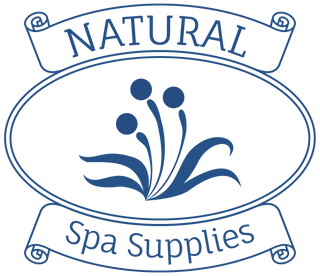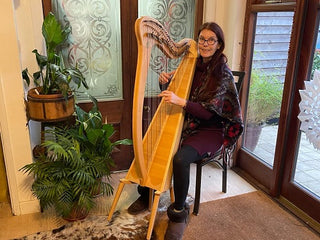Last January, I decided to stop drinking alcohol for health reasons. Having consumed alcohol regularly for most of my adult life, I anticipated that quitting would be a challenge and a drag. How wrong I was! Quitting alcohol turned out to be easier than I thought, and the benefits were greater than I had imagined. I want to share my journey and strategies with you. They might encourage you try out Dry January and discover the benefits for yourself.
Dry January is an official movement, which encourages people to experience the benefits of abstaining from alcohol for 31 days. Quitting alcohol, actually a poison, gives a mind and body a reset. Many people who take part find that they learn how to control their drinking better through the rest of the year and for some people, the benefits are so great that they never return to drinking.
The Beginning of My Alcohol Free Journey
My decision to quit alcohol began last January with a health issue. My doctor told me that alcohol was hindering my recovery. I needed to quit. My initial plan was to abstain for a short while, but I ended up going dry for nine months. During this time, I developed trust in myself and my strategies and felt confident to reintroduce moderate drinking.
As a result of the resilience that stopping drinking built in me, I have returned to drinking often less than one bottle of beer, a stout, a day. While moderation works for me, (so does abstinence) I acknowledge that for some people, only complete, permanent abstinence can enable them to live their best lives.
For some people looking to stop drinking there is no need to seek medical advice. However, if you are heavily dependent on alcohol, it’s important for you to seek medical advice before you stop drinking completely as it can be very dangerous, and even kill you. Speak to a health professional at your GP surgery or an advisor at your local alcohol support service first to ensure that you reduce your drinking safely and with the right type of care and support.
The Early Days of Quitting Alcohol
The first days of quitting were a bit unsettling. I struggled to find replacement drinks that I enjoyed since I didn't have many non-alcoholic options—tea or coffee. I did have some herbal teas in the cupboard but found them unsatisfying. I wanted to find a healthy option which I could really enjoy.
In my quest, I discovered coconut milk and ginger extract – it had taste and felt warm (a bit like alcohol) in the stomach. Despite reservations about the difficult to recycle packaging, it was cheaper and certainly better for me than a bottle of wine. Exploring other sensible drinks such as aloe vera juice, milk kefir and various smoothies helped introduce variety. I wanted to avoid sugary and carbonated drinks. Within a few days, I noticed that my taste buds become more sensitive, allowing me to derive more enjoyment from the new drinks I was trying.
Discovering Alternative Non-Alcoholic Drinks
Still seeking satisfaction, I expanded my non-alcoholic drinks menu by trying instant chicory root. This coffee-like drink without caffeine became my non-alcoholic beverage of choice. Its bitter, slightly malty taste provided a nurturing, warming, and filling experience. The sense of sufficiency and completeness I gained from drinking chicory root was something I never experienced with alcohol.
To kickstart your journey, consider making a healthy nurturing drink like chicory root, hot chocolate, or even a soup. Have a second non-alcoholic drink ready within arm’s reach. .I still keep a variety of the earlier drinks I had tried and liked, so that I am never short of variety.
Day One of Abstinence
I didn’t know what to expect on the first day that I didn’t reach for a drink, but my doctor was aware of my intentions. Had I encountered problems, I could have reached out to the surgery. I didn’t know whether my regular drinking has made me addicted to alcohol or whether I was just drinking out of habit and because I had never bother to explore other options. I was, luckily, in the second bracket.
I accept that for some people giving up alcohol or keeping consumption within sensible limits is a continuous trial and they need the level of support that only a professional can offer.
Besides feeling restlessness for the first few days, I didn’t experience any other withdrawal effects. I had no tremors, no nausea, no sickness, no sleeplessness.
The Surprising Benefits of Quitting
- From the very beginning of giving up alcohol, the first day, I noticed significant changes in the quality of my sleep. Contrary to my earlier belief that alcohol helped me sleep, I discovered I could sleep deeply through the night without waking up multiple times. I mentioned it to my doctor and he let me know that the liver has over 400 functions, but when you drink alcohol, the liver must switch its attention to dealing with this poison. The other 400 process take second fiddle. No wonder over-indulgence of alcohol effect your sleep and energy cycles so much.
- I also observed within the first weeks that I wasn't staying up as late and was getting up earlier. I was feeling more in tune with the light and dark cycles of the day and I have coped better with the clocks going back.
- I was sleeping soundly and waking up with a completely clear head.
- My eyes appeared clearer and the skin tone around them improved.
- I could breathe better too – I was quite surprised by that benefit!
- I experienced higher energy levels throughout the day and I get more done in a day.
- Contrary to my fear of the psychological difficulty in giving up alcohol, I found myself feeling less anxious within weeks. A belief that alcohol, could help people to cope with life's woes, is a fallacy. There are many more productive ways to deal with trauma and everyday stresses. After two weeks of abstaining from alcohol, I recognized that I had quit, and it felt good.
Rewarding Myself

It was time for a reward—I wanted to enjoy a daily reward rather than something transient like a holiday or a meal out. I chose to rent a HARP! The harp served as a brilliant reward for my healthy choice but I set a rule. If I were to return to unhealthy drinking levels, the harp would have to go back. It was a great formula – the money I had saved on buying alcohol could be used to rent a harp and pay for lessons.
The astonishing musical instrument, a Welsh made Celtic harp arrived. With 38 strings, a large ash frame, and a massive tika wood soundboard. I held the harp against my body. As a string was plucked, other strings resonated. Harmonic waves vibrated through my body. The beautiful sounds have a profound balancing effect.
With daily practise, I can now play a few tunes. Before leaving for work, I run through them. Playing a musical instrument activates many regions of the brain. It makes me feel fully conscious and calm before leaving for work. I am sure it makes me a safer morning driver.
In the evenings, I practice British and Celtic folk tunes. Every day, my musicality improves a tiny bit across both the harp and my other instrument, the concertina.
The Natural Reward of Neurotransmitters
Playing music releases hormones into the bloodstream. There is an immediate release of endorphins. These make you feel pleasure and block the signals that give us pain and stress. Serotonin is released. This neurotransmitter lifts the mood and gives a sense of euphoria. In addition, dopamine levels increase this gives a feeling of satisfaction and motivation; Also, interestingly, natural endocannabinoids are released and these reduce anxiety and induce a feeling of calm.
On the other hand, alcohol messes with our own body’s neurotransmitters in a very detrimental way. Alcohol decreases levels of an important neurotransmitter called GABA. Low levels of GABA can lead to increased anxiety, intrusive thoughts and other mental health issues.
There is no competition. It is much more pleasant to have my GABA levels in balance and enjoy all the happy hormones to their fullest.
While a musical instrument may not suit everyone, finding a challenging daily hobby that requires deep concentration, develops skills, that brings a sense of accomplishment, and builds social connections is I believe, key. Not only is a hobby a great distraction from drinking alcohol, the most engaging hobbies provide even better ‘hormone’ rewards than alcohol ever can. I hope that every one has an interest, a hobby - a healthy obsession that can instantly release all these happy hormones.
I can confirm following a Christmas day with 14 people present, that in a in a social setting, when I am not drinking, I don’t feel any less confident, my humour is just the same, and I am the one with the highest level of stamina. I am the person that all the drinkers respect and can call on. That makes me more popular, doesn’t it?
Additional Benefits of Stopping Alcohol
- Quitting alcohol brought about remarkable changes. A nagging ankle injury that bothered me for nearly 10 years, keeping me awake at night, has forgotten to plaque me.
- I have lost some weight and have a nicer body shape. My clothes feel more comfortable.
- Feeling more responsible and helpful, I can drive friends or family in the evenings. I am that friend to call on to help with any emergency.
- As a woman of a certain age, my temperature is more stable, particularly through the night.
- I am no longer buying wines made in Europe, South America and the Antipodes, but a beer brewed just down the road. This massively reduces my environmental impact.
So here we are. I did stop drinking, and with my strategies in place, I gained confidence that I could be the master / mistress of my drinking habits. Participating in this Dry January will help me to reinforce the fact that I can choose whether or not to drink.
I now feel I can live my life to its fullest. This also has a positive impact on my life mission – to provide a way for people to live a more environmentally friendly life. I run a website, www.naturalspasupplies.co.uk which provides plastic free natural body care and cleaning products made straight from the resources of nature. The more energy and balance I have in my personal life, the more I can help the business to achieve its mission - getting people off plastics and chemicals.
Drinking Within Moderation
If you feel you are dependent on alcohol, you will need more support than this article can offer. Have an honest discussion with your GP, telling them how much you drink - count the amount of empty bottles you produce over a day or a week, or photograph them. Your doctor or nurse really wants to help. For some, it's only safe to quit within a medical framework or a proper support group. A health professional at your GP surgery should know what to do and can give you confidential advice on how to access the right support for you. But still, you may find the key strategies that worked for me might help you in your journey.
For me the first part of the strategy was trying a variety of non-alcohol drinks until I found drinks which made me feel better than alcohol. I prefer the warm, relaxed and complete feeling from drinking the chicory root. I actually have it several times a day. Now, if I had to make a choice between keeping alcohol or chicory root in my life, the chicory root would win. Try some different non-alcoholic drinks yourself and see which ones work for you.
The second really important part was to focus on the best hobby for me something that could engage me every day – the harp - which comes with rules. Anytime I play the harp, I feel instantly good due to the ‘happy hormones’ that my body makes for free, in response to the musical harmonies.
Can you identify a hobby or activity that can make you feel the same way? Maybe find something that isn’t weather dependant, something that you can do in the evenings. Dancing, singing, painting, sculpture; crafts such as knitting, basketry, woodwork, building models or miniatures; fixing clocks, games such as chess, writing, researching family history, building automatons, making toys, dog training, building cat hotels…There are hundreds of constructive activities to discover.
For further inspiration, have a look at the resources on the Dry January official website – they can provide an app and coaching emails which could massively help you on your journey of health and happiness. There are lots of other free recourses out there to help you too.
Happy Dry January!
What benefits you have you noticed from taking part in Dry January?
What incentives have worked for you in abstaining from alcohol or initiating sensible drinking?
Which hobby have you used to quit alcohol?
See Where It Takes You...
Here is a little video, showing how when recourses are diverted away from alcohol, what can be achieved in 9 months...it is me playing the harp to my family at Christmas.
Final Words
If you like, you can email on the website contact form and I can send you a copy of this transcript. Then maybe get your computer to read it aloud during your first few days of quitting while you get your strategies and conditional rewards in place.
Please do share this blog using the share buttons to people you know who may not even have heard of Dry January. It could make a big difference.
If the sharing of my strategies helps you or someone you know, please return the favour and support me in my mission by learning more about going green on my website. Here you will find a range of plastic free, honest eco products without the greenwash. They are the sorts of products you will be able to use every day. You might even find some of our products might support you such as the Water Amphora to help purify make tap water, the Ionic Body Brush which also stimulates the release of happy hormones and helps with pain relief, or even using Miswak, a Tree Root Toothbrush / chewing stick which is reputed to help with nicotine addiction. Might it also help to accomplish a dry January?
Further Recourses
NHS
https://www.nhs.uk/live-well/alcohol-advice/alcohol-support/
NHS
https://www.nhs.uk/live-well/alcohol-advice/tips-on-cutting-down-alcohol/
Music and Hormones
https://link.springer.com/referenceworkentry/10.1007/978-3-319-16999-6_2844-1#:~:text=Nitric%20oxide%20(NO)%2C%20endorphins,2006).
Low neurotransmitter GABA issues in alcoholics
https://www.gbhoh.com/gaba-and-alcohol-how-drinking-leads-to-anxiety/
Dry January – the Official Website.
https://alcoholchange.org.uk/help-and-support/managing-your-drinking/dry-january


